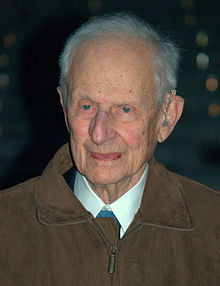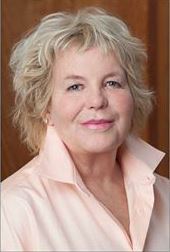Author Lucinda Franks, in interviews and author signings, illuminates her memoir, Timeless: Love, Robert Morgenthau and Me (Sarah Crichton Books, Farrar, Straus and Giroux 2014)
— by Margie Doyle —
For a book entitled “Timeless,” this memoir is all about the passage of time as seen through three focal points: marriage, journalism and justice.
Love – the story of an unlikely courtship and a 40-year marriage:
- The author, married in her twenties to a man 26 years her senior;
- The expectations each brought to that partnership;
- The assistance each provided the other in their respective careers.
Morgenthau – Robert Morgenthau, U.S. District Attorney for Manhattan, New York for over 40 years (1961-70 and 1974-2009):
• An establishment icon, son of FDR’s Treasury Secretary and founder of War Refugee Board and grandson of the U.S. Ambassador to Turkey who exposed the 1913 massacre of the Albanians;
• Fired by Nixon in 1970, returned to office in 1975 and served until 2009;
• Prosecutor of drug, terrorism and white collar crimes, now working pro bono on immigration law.
Me – Lucinda Franks, United Press International (UPI), New York Times and New Yorker journalist:
• Boston debutante;
• International Civil Rights and Antiwar activist;
• Pulitzer-Prize winner for her series on the Weather Underground.
Lucinda Franks recently came to Seattle’s Town Hall on a book tour of Timeless; and in interviews with Orcas Issues and with the public, gave away even more of the story.
Theirs was “a complex marriage between two very different people;” she says, yet this memoir reveals the many rock-solid similarities between the elder attorney and the younger writer – both investigators, both from supportive families, both independent-minded, both with a strong sense of history and both dedicated for life to each other.
Lucinda Franks, coming of age in the 1960s, ripe for registering social protest and rebellion, as were many at that time; entering the “man’s world” of international news rooms as a coffee girl and covering civil right in Northern Ireland on her own spontaneous, questioning and bright.
She answered a questioner at Seattle’s Town Hall, who asked if she had any regrets about her days of anti-war and civil rights activism, “her radical phase,” with some bewilderment and heat: “I have nothing to regret. I did nothing to hurt anyone. The anti-war movement was responsible for bringing hostilities to an end. We changed the ethos of our parents’ generation, and helped the movement for civil rights.”
As a disaffected American debutante, Franks went to London and through family connections, got her subservient job at UPI. She was the only woman in a newsroom with men who relied on stories “fed” to them by press officers. After reporting on a civil rights march in Northern Ireland that turned violent, she later was told by her editor, “Franks, I don’t think of you as a woman; I think of you as a reporter.”
“My highest compliment,” she says now.
Then, in the U.S., on assignment for the New York Times, she reported on the Weather Underground, U.S. terrorists whose bomb factory in Greenwich Village had killed one of their own, Diana Oughton, and sent Kathy Wilkerson and Kathy Boudin on the run for decades. Franks won the Pulitzer Prize for her story, and insisted that her research assistant, Tom Powers, share credit with her for the award.
In 1974, she was “following the money” in the Watergate scandal and secured an interview with District Attorney for New York’s Manhattan District, Robert Morgenthau, who had recently been fired by President Nixon. She was nervous, he was entranced, a fact she didn’t realize for three years, in part because her live-in boyfriend declined to relay Morgenthau’s phone messages to Franks.
Her advice now to journalists recalls her early days in the profession: “I went out with my boots on the ground and saw stories missed by people who settled for official version of the truth. To bring respect to journalism, really investigate and write the story telling the truth that hasn’t been told yet.”
Robert Morgenthau, raised in large part by himself, as his mother was often ill, serving as a Naval officer in World War II, pursuing the investigations and serving justice as a prosecutor of Mafia gangs, drug dealers and white collar criminals; raising five children as a widower in 1974 when he and Franks met — and two more following their marriage: reserved, wise and determined.
Morgenthau’s cases included the 1985 prosecution of Bernard Goetz, the “Subway Shooter” who shot and gravely injured four young men who were allegedly attempting to mug him. Though the public was in favor of acquittal, Morgenthau said to Franks, “The mob happens to be wrong.
“I don’t prosecute on the basis of mobs and I don’t prosecute for political advantage. Anger is not self-defense.” Morgenthau led the prosecution for attempted murder, assault and firearms offenses. The jury found Goetz innocent of murder, but convicted him on gun charges; one of his victims obtained a civil judgment of $43M against Goetz in 1996.
Among Morgenthau’s white-collar crime cases was Bank of Credit and Commerce International (BCCI), which in 1991 was found to have laundered money for criminal enterprises. Morgenthau described it as “the largest bank fraud in world financial history.” He prosecuted Tyco corporation’s two top executives in 2005 for stealing more than $150 M from the company.
As Kevin McCoy wrote in USA Today in 2002: “The roster of his office’s big financial cases reads like an investor’s nightmare: A.R. Baron & Co., a former brokerage whose employees defrauded investors of more than $75 million. And Meyers Pollock Robbins, a defunct investment firm implicated in a $176 million stock-promotion scheme. (usatoday.com/2002-06-24-morgenthau)
Back on the home front, Franks would encourage Morgenthau to “go out of his jurisdiction and bend the rules” in prosecuting international cases, (which had standing in Manhattan’s district court). Franks says, “Nobody else was going to get them.” She says, “It was difficult to understand the labyrinthian movement of money through the banks, but Bob had a mathematical talent to look at the documents and trace where the money was.”
She encourages attorneys to “Go after the truth — the big guys and not the little guys.”
And she says, “Be careful whom you represent.” She paraphrased her husband’s early advisor, Robert Patterson, U.S. Secretary of War who said: “Everyone has a right to representation, but if you want to live with yourself and have a moral compass, you won’t represent someone who’s a harm to society.”
Now, in 2014, Bob Morgenthau is “going great guns, working pro bono for immigration reform. “He’s become a crusader,” says Franks. “I’ve always been a crusader.”
It’s apparent that, despite the age difference, Morgenthau and Franks are “hauntingly alike,” as she puts it. “We think of each other as trains going down parallel tracks.” She shares stories of how they witnessed the historic events of their lifetimes: She witnessed the 1963 Kennedy assassination on television in her school principal’s office. He heard of the killing of the president at Bobby Kennedy’s side, as FBI Director Edgar Hoover told the U.S. Attorney General over the telephone on Nov. 22, 1963.
Over 30 years later, on Sept. 11, 2001, Morgenthau came home from Manhattan smelling of smoke and burning embers. “We just fell into each others’ arms and time stopped,” she says. He spoke of what he’d witnessed first-hand, “tales of superhuman strength, tragedy and heroism;” Lucinda was consumed by the desire to discover and punish those who had killed so many in one terrorist act.
They share passionate support of Israel, strongly rooted in their own history. His father was the only Jew in FDR’s cabinet, and was instrumental in the organization and mission of War Refugee. Her secretive father, she learned in part because of her husband’s efforts, had been a spy in WWII and had been among the initial liberators of the concentration camps in eastern Europe.
Why did they marry? With stunning directness, Franks rephrased and answered that question at Seattle’s Town Hall. “What was missing in ourselves that we saw in the other?
“Bob wanted a young person, a second chance, and to be taken care of (after he had cared for his dying father, mother and wife. He loved my ebullience. He kept everything in, and had a very dry sense of humor.
“And I wanted his stability, his wisdom about how to change the world. I might have gone underground. But he showed me you don’t have to shout to change or effect protest.”
And the unspoken question, Franks takes full-on: “Did I marry my father?” She reads a beautiful passage from her memoir and concludes, “I believe that love is no accident, no whisper from a random universe. It comes from deeper elements of longing and recognition.”
As she explained at Seattle’s Town Hall, Franks said she wrote this book after hearing Morgenthau repeatedly decline to write his own memoir. She recalled him saying, “If I look back, I can’t look forward.”
However, when she approached him about writing such a book, “He changed his tune.” Franks wrote the book with the proviso that her husband had to read and approve all the drafts she wrote.
Their story together, at its foundation and as it’s run its course, isn’t so complex. It’s the story of two strong people, committed to be true to themselves, to their professions – and to each other.
**If you are reading theOrcasonian for free, thank your fellow islanders. If you would like to support theOrcasonian CLICK HERE to set your modestly-priced, voluntary subscription. Otherwise, no worries; we’re happy to share with you.**









